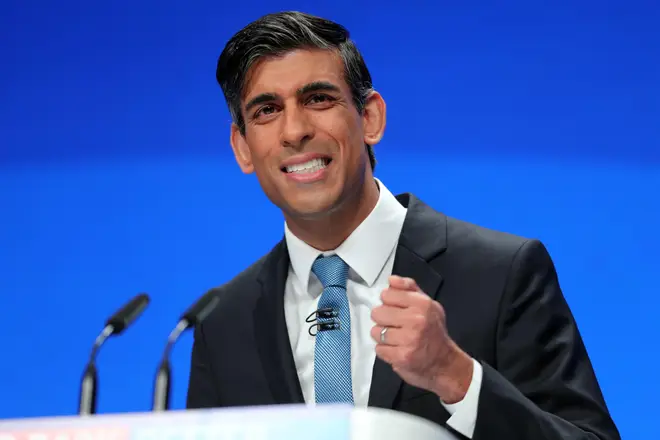
Nick Abbot 10pm - 1am
27 October 2022, 09:17 | Updated: 27 October 2022, 10:51

Rishi Sunak is reconsidering major cuts to public spending and tax rises and after a marked improvement in the country's finances.
The newly appointed PM delayed the medium term fiscal statement on Wednesday from Halloween to a November 17 to give Jeremy Hunt time to rework the plans.
Analysis due to be published today shows the two-week delay is expected to save the Treasury up to £15 billion, The Telegraph reported.
With the interest rate paid on government gilts dropping fast - and the international gas price coming down - confidence is growing in Downing Street that it may be necessary to make more minor changes to the public finances.
The Chancellor had previously warned “some taxes will go up” and that others wouldn't be cut "as quickly as people want”.
High earners will reportedly be hit with up to £20 billion of tax rises, while departments in Whitehall have already been told to make savings of from 10 to 15 per cent each.
But due to the improving economic picture, Mr Sunak is now considering whether some of the plans drawn up for the October 31 statement can now be watered down or scrapped.
The decision to push back the financial statement means interest rates will now be set by the Bank of England on November 3 without knowing the new the Government's new policy on spending and taxation.
Yesterday, the PM told his new Cabinet the Bank must lead on bringing inflation to target, adding that he'd discussed his plans with Governor Andrew Bailey ahead the decision next week.
Analysis produced by think tank The Resolution Foundation said that the fiscal statement delay would give the Treasury savings of between £10 billion and £15 billion - it was expected that the exchequer would be faced with a £35 billion black hole.
Despite this, the Government will still need to find big savings in public spending, and extra revenue will still need to be found, with No 10 refusing to guarantee a string of past promises on Tuesday night.
The pensions triple lock, which guarantees the state pension rises by which ever is highest out of inflation, earnings or 2.5 per cent, is in doubt, with Downing Street refusing to promise it will remain.
Mr Sunak also didn't guarantee that Universal Credit would increase in line with prices, and Number 10 wouldn't commit to introducing the PM's leadership promise to cut the basic rate of income tax from 20 per cent to 19 per cent in 2024 and eventually reducing it down to 16 per cent.
Mr Sunak has reimposed the ban on fracking introduced by Liz Truss and dropped her policy of spending three per cent of GDP on defence by 2030.
However, household energy bills will remain frozen until spring.